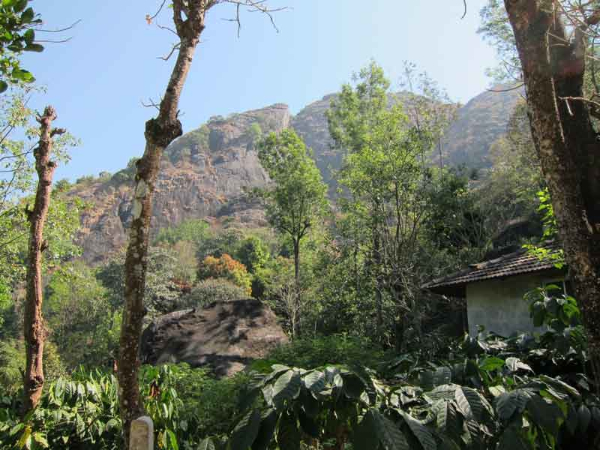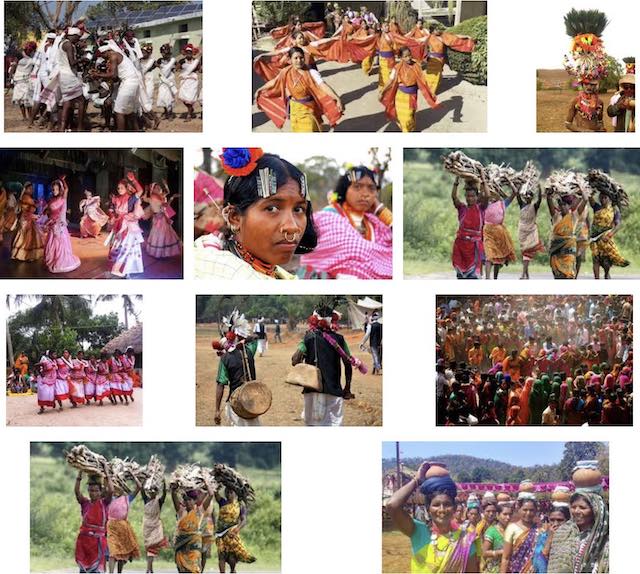
Photo © Ludwig Pesch
Wayanad song by Kanavu music group >>
URAVU is a non-government organization working with people, governments and businesses to implement programs for sustainable employment and income generation in rural areas. Uravu is a non-profit trust, established in 1996, registered under the Indian Trusts Act.
Uravu promotes social enterprises based on value addition of local, natural resources, especially bamboo, the “green gold”. Uravu implements integrated, end-to-end programs in the bamboo sector, which include providing skill training in bamboo processing, establishing micro enterprises, marketing of bamboo handicraft, cultivation of bamboo and promotion of eco-tourism.
Uravu strives for empowering marginalized social groups, especially the traditional artisans, women and the Indigenous People.
Uravu is located in Thrikkaipetta village in Wayanad district, Kerala state, South India
Source: www.uravu.net/
Date Visited: Sat Apr 04 2015 12:07:23 GMT+0200 (CEST)
Uravu is a premier agency in the country providing skill training in bamboo processing. Since its inception in 1996, Uravu has provided training in bamboo handicrafts to over 1000 women in different parts of Kerala and the neighboring states.
The master craftspersons at Uravu have undergone trainers’ training in various institutions including the Bamboo Studio, IIT-Mumbai, Cane and Bamboo Technology Centre (CBTC), and National Institute of Design (NID).
With the support of the Common Facilities Centre (CFC) in Thrikkaipetta village, Uravu has upgraded its training programs to include training in using various bamboo processing machines.
Source: http://uravu.net/programs/
Date Visited: Sat Apr 04 2015 12:08:23 GMT+0200 (CEST)
Up-to-date reports by Indian experts and journalists
Search tips
Combine the name of any particular state, language or region with that of any tribal (Adivasi) community.
Add keywords of special interest (music, poetry, dance just as health, sacred grove and biodiversity); learn about the rights of Scheduled Tribes such as the “Forest Rights Act” (FRA); and the United Nations “Declaration on the Rights of Indigenous Peoples”, “Universal Declaration of Human Rights”, “women’s rights”, or “children’s right to education”.
Ask a question that includes “tribal” or “Adivasi”, for instance: “Adivasi way of life better?” (or “tribal way of life worse?”)
Specify any particular issue or news item (biodiversity, bonded labour and human trafficking, climate change, ecology, economic development, ethnobotany, ethnomedicine, global warming, hunter-gatherers in a particular region or state, prevention of rural poverty, water access).
For official figures include “scheduled tribe ST” along with a union state or region: e.g. “Chhattisgarh ST community”, “Himalayan tribe”, “Scheduled tribe Tamil Nadu census”, “ST Kerala census”, “Particularly Vulnerable Tribal Group Jharkhand”, “PVTG Rajasthan”, “Adivasi ST Kerala”, “Adibasi ST West Bengal” etc.
In case the Google Custom Search window is not displayed here try the following: (1) toggle between “Reader” and regular viewing; (2) in your browser’s Security settings select “Enable JavaScript” | More tips >>
Note: hyperlinks and quotes are meant for fact-checking and information purposes only | Disclaimer >>
List of websites covered by this Google custom search engine
Academia.edu (platform for academics to share research papers) – www.academia.edu
Archive.org – https://archive.org
Centre for Science and Environment – https://www.cseindia.org
Current Conservation – https://www.currentconservation.org
Development and Cooperation (D+C) https://www.dandc.eu
Down To Earth (India) – www.downtoearth.org.in
India Environment Portal – www.indiaenvironmentportal.org.in
Harnessing Nature Magazine – https://harnessingnature.online
Mongabay-India – https://india.mongabay.com
M S Swaminathan Research Foundation – www.mssrf.org
Navdanya (protecting India’s biodiversity based food heritage) – https://navdanya.org
Third World Network (Penang, Malaysia) – https://twn.my
The Shola Trust (nature conservation in the Nilgiri region) – www.thesholatrust.org

Indian online periodicals and platforms | Images view >>
~ ~ ~
Personalize your CustomSearch by combining other search words >>
(e.g. name of a tribal community and region, a craft, or dance and puppetry)
Research the above issues with the help of Shodhganga: A reservoir of theses from universities all over India, made available under Open Access >>
Note: hyperlinks and quotes are meant for fact-checking and information purposes only | Disclaimer >>
See also
Adivasi Academy & Museum of Adivasi Voice at Tejgadh
Atree.org | Ashoka Trust for Research in Ecology & the Environment (posts)
Biodiversity | Hyderabad biodiversity pledge | Nilgiri Biosphere
eBook | Background guide for education